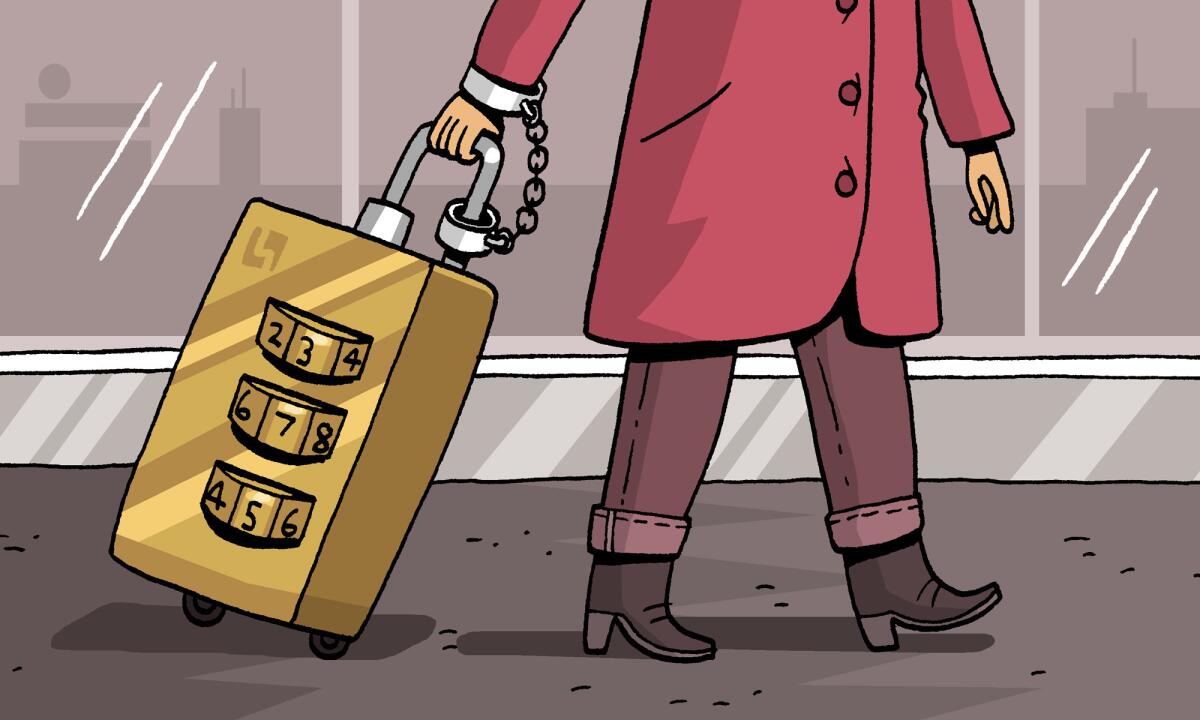More for Your Money: Be on the alert for travel scams

- Share via
If you have the money to travel, you’ll want to spend it the way you want to spend it. That means making sure rip-off artists keep their mitts off your dough.
With this in mind, the members and editors of travel website VirtualTourist have compiled a list of the worst travel scams and schemes and how to avoid them.
Pickpockets: Pickpockets no longer limit themselves to the simple “bump and grab.” VirtualTourist members mentioned that in many instances, pickpockets are working in teams: While one shows you a gold ring or points out mustard on your shirt, another cohort is stealing your wallet. Nowadays, there are many more things for thieves to steal than just your wallet — cameras and smartphones, for instance.
Distraction can also be a scammer tool. A woman will approach you waving a newspaper or asking for help reading something, but under the newspaper, she is palming your phone off the cafe table. If someone offers you unsolicited help, politely decline and quickly walk away.
Always keep your valuables (passport, important papers and extra credit cards) in your hotel safe, and make sure to record the serial numbers of any electronics. Some cities require a serial number to file a police report.
Pickpocketing is rampant in crowded areas with a large number of tourists. VirtualTourist members commented that it was common in Barcelona, Spain, particularly on Las Ramblas, the central pedestrian street.
Gypsy cabs: Taxi scams can be as simple as drivers who are unlicensed and who overcharge or who take you the long way to your destination. Here are some tips to make traveling by taxi easier. If there’s a taxi queue, get in the line. Many cities (Rome, New York) have a set fare from the primary airport to inside the city. Make sure you know this number and clarify it before you put your bags in the car. If you are leaving your hotel and going to a site, ask the doorman or concierge how much the taxi fare should be. VirtualTourist members note that Rome is a particularly bad spot for taxi scams, especially near Termini Station.
Volunteers with poor intentions: In a foreign country, “volunteers” may offer to assist you when you’re making a transaction or using any automated machine. Be wary of any stranger who offers help too easily, particularly in high tourism areas or transportation hubs, such as Paris’ subway and train stations, especially Gare du Nord. If possible, buy tickets in advance or through a window vendor at the station.
A substitute for a tourist attraction: In certain parts of Southeast Asia, VirtualTourist members noted, locals may approach tourists, noting that the “palace is closed today because of” (fill in the blank with a religious ceremony, royal function, cleaning, etc). Then they’ll steer you into a nearby tuk-tuk (or motorized rickshaw), offering to take you to a gem factory or another tourist attraction. Sometimes these not-so-do-gooders might even have on a uniform. The palace/site/wat is probably not closed today, so before you turn around and embark on a tuk-tuk ride to commissioned jewelry stores and tailors, check for yourself. There are numerous member reports of this at various places in Bangkok, Thailand, including the Grand Palace and Wat Po.
The math genius: The math genius is often a waiter or taxi driver, which helps (him, not you) since he’s already provided you with a service for which you need to pay. Here’s how it works in a taxi: You owe the driver 15 euros, and you pay with a 20 euro bill (about $25). He switches out the bill you gave him for a 5 euro bill, which looks similar. He holds it up and argues that you owe him 10 more euros. You apologize and give him the 10 euros, and only after exiting the car do you realize you essentially paid twice the taxi fare. Many travelers have fallen for this trick because of exhaustion or unfamiliarity with the local currency. Although this can happen everywhere, VirtualTourist members say it is common in Istanbul, Turkey, and New York City.
More to Read
Sign up for The Wild
We’ll help you find the best places to hike, bike and run, as well as the perfect silent spots for meditation and yoga.
You may occasionally receive promotional content from the Los Angeles Times.






